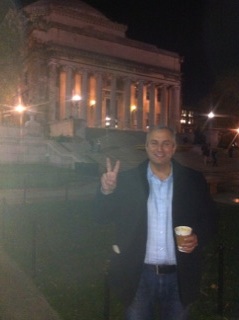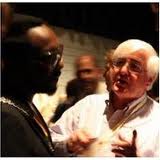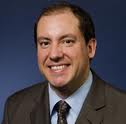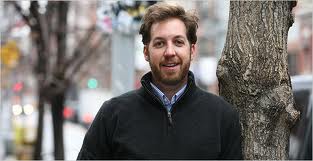If this is your first visit you may wish to follow me on twitter here, my RSS feed here or subscribe via email here
Who hasn't dealt with the occasional a**hole at work? Every American knows it to be one of the unavoidable rights of passage for an employee. Think about it- you have voluntarily chosen to work in an environment created by others and staffed with people not of your choosing. If you didn't have the luxury of choosing carefully you are basically a victim waiting to be victimized.
In fact, I agree with Mark Suster, who often makes the point that getting away from a**holes is probably the single greatest motivator for entrepreneurship in the world.
One thing that frustrates me to no end however, is hearing people who work for a wage complain constantly about all the unpleasant people they have to work with. My view is simple- if you can't stand it, no one is forcing you to work there so why not get the hell out of there? Start bootstrapping a business, join a startup, find a better environment- do something- but by all means- stop whining about it.
So for everyone that thinks they have it tough, here's the true story of a buddy of mine who's going through some tough times right now dealing with some real a**holes- and I mean a lot of them!
This guy is actually an incredible salesman and entrepreneur and co-founded a venture-backed company for 3 years that ended up going sideways after a herculean effort on his part. He was recently getting set to be a part of yet another venture but his wife let him know that she'd prefer it if he took a steady job for a while as they had plans to start a family. It so happens that she has a great job that pays well and has been the family's primary source of income for the previous four years of their marriage. Being a good spouse, he obliged and began a job hunt in earnest...
I saw him recently and asked him where he ended up working. It turns out was able to land a sales position with a medical device company wherein a large part of the job involves him assisting surgeons with a procedure that utlizes this company's device. He makes approximately $1,000 per procedure- not bad, right?
There's a slight problem. The procedure, which he described in excruciating detail, involves people's a**holes- literally. Yes that's correct- you read it right.
Basically, he has to prep the patients (many of whom are elderly and not terribly hygeinic) using iodine and then pieces of tape to "set the stage" for the physician (I won't elaborate), talk to the patients before, during and after the procedure as they are only slightly sedated during these surgeries, and deal with a miasma so rancid that he is often suffering from nausea throughout his workday. (The surgical mask is apparently no match for these odors). There are multiple such procedures daily and he dutifully assists the surgeons as this is part of the excellent customer service he must provide.
I want to point out that the story he told me was so foul that at some point I actually asked him to stop. (Normally I am a pretty good listener). I was literally becoming sick after just a few minutes of hearing about what he has to actually do 5 days a week.
The crazy thing about this was that the guy wasn't complaining to me. He was just telling me about it and saying that he needs to hang in there for now as it pays well and they're going to start a family soon.
Here's someone who has one of the most disgusting jobs a person could ever imagine- and he's handling it somehow. It was profoundly humbling talking to him. Next year he'll be on to his next start-up no doubt- but for now he's taking care of business and making sacrifices for his family's well being.
Anyway- there's some motivation for you next time you're dealing with some a**holes at work or are finding it challenging to bootstrap your next venture. :)
For Part 31 in in this Series, click here

















